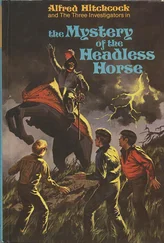William Flynn - The Barrel Mystery
Здесь есть возможность читать онлайн «William Flynn - The Barrel Mystery» — ознакомительный отрывок электронной книги совершенно бесплатно, а после прочтения отрывка купить полную версию. В некоторых случаях можно слушать аудио, скачать через торрент в формате fb2 и присутствует краткое содержание. Жанр: foreign_antique, foreign_prose, foreign_sf, на английском языке. Описание произведения, (предисловие) а так же отзывы посетителей доступны на портале библиотеки ЛибКат.
- Название:The Barrel Mystery
- Автор:
- Жанр:
- Год:неизвестен
- ISBN:нет данных
- Рейтинг книги:5 / 5. Голосов: 1
-
Избранное:Добавить в избранное
- Отзывы:
-
Ваша оценка:
- 100
- 1
- 2
- 3
- 4
- 5
The Barrel Mystery: краткое содержание, описание и аннотация
Предлагаем к чтению аннотацию, описание, краткое содержание или предисловие (зависит от того, что написал сам автор книги «The Barrel Mystery»). Если вы не нашли необходимую информацию о книге — напишите в комментариях, мы постараемся отыскать её.
The Barrel Mystery — читать онлайн ознакомительный отрывок
Ниже представлен текст книги, разбитый по страницам. Система сохранения места последней прочитанной страницы, позволяет с удобством читать онлайн бесплатно книгу «The Barrel Mystery», без необходимости каждый раз заново искать на чём Вы остановились. Поставьте закладку, и сможете в любой момент перейти на страницу, на которой закончили чтение.
Интервал:
Закладка:
Comito's own story follows:
"The reader will pardon me, if, in reading this story of my life in New York, there are errors of language and periods not well expressed.
"During the latter part of 1908 and a good part of 1909, I had occasion to know many malefactors who horrified me from the very start, and whom I gradually came to fear as I studied their brutal character. I refrained from denouncing these men to the police because I was constantly in danger of losing my life had I done so.
"These men were the leaders of the notorious 'Black-Hand' Society, which spreads terror among the Italians all over the United States. While among them I studied the badness, the power, the brutality and the arrogance of the counterfeiter and the assassin.
"They were not a very civil lot. They were villains incarnate. One of their characteristic traits is that one alone would not commit a crime because of cowardice. When a 'job' was to be executed it was always carried out by three or four directed by a 'corporal,' who was put in charge by the head bandit. This 'corporal' bossed the job, remaining all the while in the distance so that in case the operations of those committing the deed were discovered by the police the 'corporal' would be sure to escape and report the circumstances to the head bandit of the society. The head bandit would in turn notify all the other members, when a counsel would be called at which steps would be taken to aid those apprehended by the police.
"What puzzled me not a little was the fact that when it came to going to trial for an offense no eye-witness would ever appear in court to tell of the crime with which the members under arrest might be charged. Those arrested usually gave fictitious names, and when placed on trial they were always freed. These men governed their association by secret orders. They operated on a vast scale and extended their crime even to the kidnapping of little children."
At this point Comito enters a long apology to those people of Southern Italy who are good citizens and law-abiding. He does not refer in this article, he says, to the honest Sicilians, who labor and earn their living honestly. It is of the malefactors, he says, that he speaks.
Comito then tells of entering New York and meeting his brother at the Battery. He relates his sensations at seeing the tall buildings of New York and the hurrying crowds in the noisy streets.
After going to the home of his brother in Bleecker Street, Comito says:
"During the dinner I was carefully advised by my uncle, an intelligent man and very cautious, having served the Italian government for twelve years as non-commissioned officer in the line infantry. He said, 'Do not acquire bad friendships. Be careful of traps that strangers may lay for you. There exists in New York a band of malefactors which bear the name of Black-Hand. Every day this band commits crimes, assassinating persons, setting fire to houses, breaking in doors, exploding bombs, and kidnapping children.'
"He told me also never to tell any one where I worked and how much I earned. He advised me to think only of bettering my condition and that of my family, because in America, in time, the man with a good will can acquire a good position."
Perhaps these words that follow may be of interest to the reader in getting an insight into the mentality of the newly arrived immigrant. Says Comito:
"My only wish was to work and put aside something; to economize, and so help the condition of my family and provide some day for my daughter that she might have a profession. I did not think of evil, and hoped from day to day to find occupation. I was a printer, and, though I did not know English, I felt confident of finding work in some Italian printing-office."
Comito then tells of finding employment in the Italian printing house of M. Dassori, at No. 178 Park Row, where he was getting along well. He tells of sending money to Italy to his wife and children. He tells of his brother here introducing him to honest Italians of the working class and of how he joined the order of the Sons of Italy and also the Foresters of America. Comito then relates his rapid rise in the Foresters, mentioning also how he became Supreme Deputy of the Order of the Sons of Italy, besides being chosen a member for the Congress of Italians abroad, which was held in Rome in 1908. He dwells on his losing employment because of lack of work in the place where he was employed. After getting employment again he finds himself once more out of a place, about the beginning of September, 1908. He tells very frankly of taking up with a lady named Caterina and how they shared the apartment which he furnished as well as his means afforded. He and Caterina lived together, he says, "respecting one another as husband and wife." Describing his affair with Caterina, who, by the way, enters in some measure into the counterfeiting story, Comito says:
"I, together with Caterina, lived agreeably, and what was earned weekly was divided equally, and we did not take into account which earned the more or the less. We made an honest front with friends. I discharged my duties with the societies with zeal."
CHAPTER VI
DON PASQUALE, BLACK-HAND SKIRMISHER
Here is where Comito gets into touch with a skirmisher, if I may use the word, of the Black-Handers. The skirmisher is the scout for Lupo and Morello who are, as usual, in the distance, their minds ablaze with the idea of getting rich beyond the dreams of Aladdin by a bold counterfeiting stroke. Comito is a printer out of work. Lupo and Morello have agents who tell them of such things. Comito might be the man to run a printing press and print the counterfeit bills. And so, I will turn you over to Comito. Listen to his own story once more:
"On the evening of November 5, 1908, I was at a meeting of the Order of the Sons of Italy, being a duty I owed the society as Supreme Deputy to attend the meetings of the different lodges. As was the custom toward the end of the meeting I chatted with the various members of the order, some of whom I knew by name and others whom I knew only by sight.
"That same night a member by the name of Don Pasquale, a Sicilian, came to me, clasped my hand, and without further ceremony said: 'Professor, will you take a walk with me? I have something to say that might interest you.'
"When we were outside, Don Pasquale said to me:
"'I know you are seeking work and that you are a good printer. A friend of mine is proprietor of a printing shop in Philadelphia. If you wish I can recommend you; but you must go to Philadelphia to work.'
"'It makes no difference to me where I work,'" was Comito's answer.
Don Pasquale got Comito's address and said that he would arrange to have his Philadelphia printer friend meet Comito at the latter's home. Comito then explains that the title "Don" is used by Sicilians as a mark of respect among the working class, and that the word "Uncle" is employed in addressing people advanced in years in the same sense.
Comito recalls the knock on his door on the morning of November 6. He says:
"I opened and saw Don Pasquale with his friend. I motioned them to enter and sit down. Don Pasquale said: 'Mr. Comito, I present to you my friend, Don Antonio Cecala, proprietor of a printing shop in Philadelphia.'
"'Are you a printer?' asked Cecala.
"'Yes,' I answered.
"'Well,' he continued, 'I am the proprietor of a shop in Philadelphia and in need of a trustworthy man who can take care of my affairs when I am absent looking out for my business as an inspector of Singer Sewing Machines. You can come to an agreement with me and establish yourself with your wife in Philadelphia. In that way I can be sure of your honesty,' said Cecala to me.
"'But,' I replied, 'I don't think that I am going to your printing shop to act as boss. You have other men that work there?'
Читать дальшеИнтервал:
Закладка:
Похожие книги на «The Barrel Mystery»
Представляем Вашему вниманию похожие книги на «The Barrel Mystery» списком для выбора. Мы отобрали схожую по названию и смыслу литературу в надежде предоставить читателям больше вариантов отыскать новые, интересные, ещё непрочитанные произведения.
Обсуждение, отзывы о книге «The Barrel Mystery» и просто собственные мнения читателей. Оставьте ваши комментарии, напишите, что Вы думаете о произведении, его смысле или главных героях. Укажите что конкретно понравилось, а что нет, и почему Вы так считаете.












